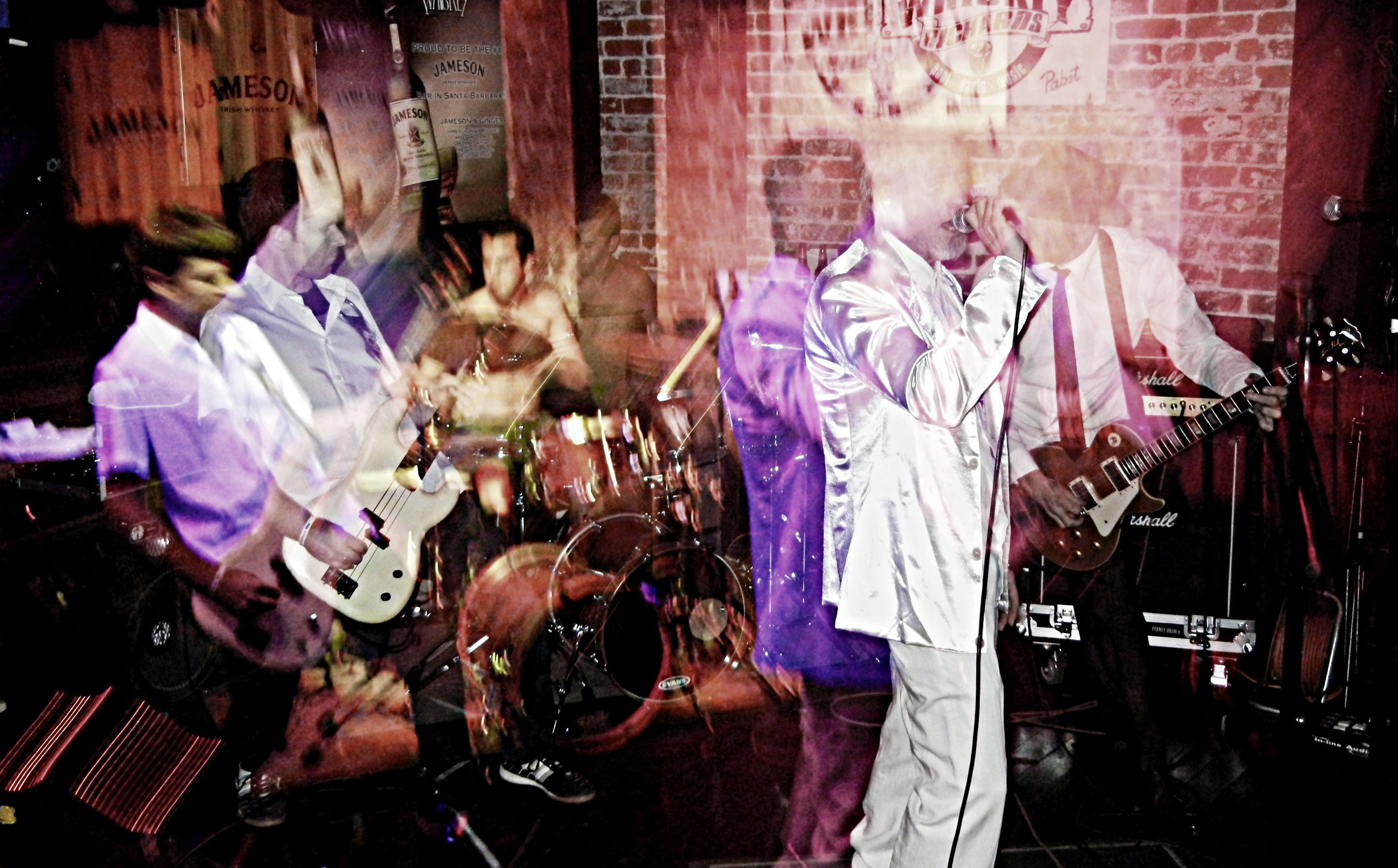Dressed in a button-down shirt, tie and blue jeans, Paul Abramson, a UCLA professor of psychology, looks like a typical lecturer, but his hidden talent for punk rock definitely sets him apart.
As the first session of his Psychology 10 class was about to end, Abramson invited interested students to remain in the Young lecture hall to hear a version of the gospel song “I’m Going to Live the Life” performed by his punk band, Crying 4 Kafka. Although the song was unfamiliar, some students started to smile and others seemed surprised as they realized that their professor and his band can rock.
But Abramson does not just introduce music to students in his classroom, he also plays at some of the most popular venues in Southern California. Daily Bruin’s Andrea Seikaly spoke with Abramson in anticipation of the band’s performance at the world-famous Roxy Theatre tonight.
Daily Bruin: How did you decide to start a band?
Paul Abramson: I was driving from Sacramento to Davis and listening to NPR and they were doing a music interview with the Boston Typewriter Orchestra. The epiphany I had was that if they can have a band, I can have a band. I was never in a band, but I come from a very musical family. We have a message to send, but not many people read academic stuff, so to disseminate these ideas, you need something other than the written word to reach certain populations. We thought of music as a vehicle for presenting these ideas. All the songs are certain ideas about social themes.
DB: What are your sources of inspiration for spreading your message in this way?
PA: I also belong to a gospel choir that is not affiliated with any church. The tradition of gospel is that they will sing anywhere because their idea is that they are spreading the gospel. In many respects, it’s a parallel to what we are trying to do. It doesn’t matter how many people are out there. We’re presenting these ideas and if you like the music and you sit and think about what’s in it, it’s a way of bringing these ideas to a much broader audience. It is very lyrically driven music.
DB: How did you and your bandmates get together?
PA: One is a philosophy professor, one is a music student and the other was a soldier in Iraq. I formed the band with an excellent multi-instrumentalist named Steve Stewart. We were asked to open a show for Bad Religion, so we constructed a band. Steve was later replaced by Rick Ambrose, who is a superb guitarist, and I knew Robin Finck from Nine Inch Nails, who has also played with us as well. We put (up) Craigslist ads and I also asked people from a choir and a lot of them showed up. We got almost everyone from Craigslist ads.
DB: What was it like to compose your latest music with Robin Finck of Nine Inch Nails?
PA: The interesting thing about him (and his wife, Bianca, of Cirque du Soleil) is that they don’t have a single diva bone in their bodies. Robin and I started by me helping him create lyrics for a lot of his music, and by doing that a lot, we came to like each other. When I was doing this music, I said to him (that) I have these lyrics and these ideas (and) if you have music then we can marry the two. We created these six songs for the CD “Frank,” and there is a prologue and an epilogue to it. All of the songs tell stories of my early childhood life. What I’ve done is to take critical issues and be very skeptical of traditional ways of looking at things to find alternatives.
DB: How did this opportunity to play a show at the Roxy come about?
PA: We have performed there multiple times and it has gone very well. It probably all started from doing a really good show with Bad Religion. The major clubs on the Sunset Strip are House of Blues, the Viper Room, Whisky and the Roxy. We’ve played three of the four, and the Bad Religion show was about one thousand to two thousand people and we did really well. That gave us credibility. I created these Sacred and Profane shows with Bianca, and by putting it all in one show our fans are fascinated by what we do. She starts out dressed as a sacred character and then becomes a profane one.
DB: Is it ever hard or scary to be vulnerable and put your personal life out there in your music?
PA: When I write the music it’s all of that, but when you perform it you’re a character. I’m kind of an open book. If someone has a sincere question, I’ll give them a sincere answer. I’m invested in creating original knowledge, original work and original interpretations. It’s more genuine and there’s more sincerity to it. These aren’t just words that I’m throwing out there because they sound cool. My message has always been that you can’t control adversity that may affect you, but you can control your reaction to it.
DB: With this performance and your new material, where do you see Crying 4 Kafka going from here?
PA: We want to continue to create interesting venues for promoting these ideas. The Sacred and Profane one was so popular that we want to create a bigger venue. We want to bring music back to its roots. We have no monitors and we just sing and take it back to basics. It’s a fundamental and organic approach to the creation of music. We want to do interesting things and have a bigger picture view of things. We want to make a difference musically and make a difference in terms of ideology.
